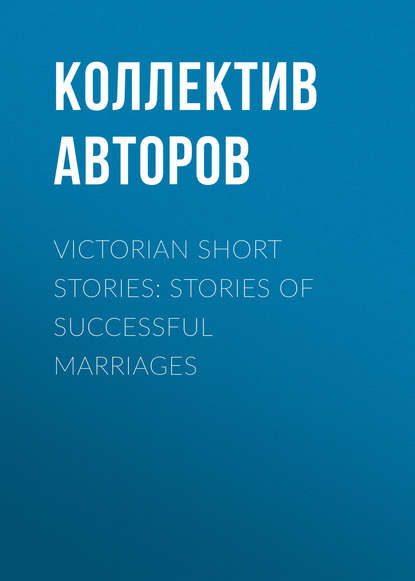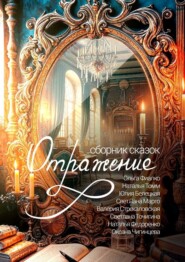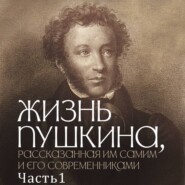По всем вопросам обращайтесь на: info@litportal.ru
(©) 2003-2025.
✖
Victorian Short Stories: Stories of Successful Marriages
Настройки чтения
Размер шрифта
Высота строк
Поля
As she drank, she remembered where she was, and who she was waiting for. She suddenly pushed Mr Openshaw away, saying, 'Oh, sir, you must go. You must not stop a minute. If he comes back, he will kill you.'
'Alas, Norah! I do not know who "he" is. But someone is gone away who will never come back: someone who knew you, and whom I am afraid you cared for.'
'I don't understand you, sir,' said Norah, her master's kind and sorrowful manner bewildering her yet more than his words. The policeman had left the room at Mr Openshaw's desire, and they two were alone.
'You know what I mean, when I say someone is gone who will never come back. I mean that he is dead!'
'Who?' said Norah, trembling all over.
'A poor man has been found in the Thames this morning – drowned.'
'Did he drown himself?' asked Norah, solemnly.
'God only knows,' replied Mr Openshaw, in the same tone. 'Your name and address at our house were found in his pocket; that, and his purse, were the only things that were found upon him. I am sorry to say it, my poor Norah; but you are required to go and identify him.'
'To what?' asked Norah.
'To say who it is. It is always done, in order that some reason may be discovered for the suicide – if suicide it was. I make no doubt, he was the man who came to see you at our house last night. It is very sad, I know.' He made pauses between each little clause, in order to try and bring back her senses, which he feared were wandering – so wild and sad was her look.
'Master Openshaw,' said she, at last, 'I've a dreadful secret to tell you – only you must never breathe it to anyone, and you and I must hide it away for ever. I thought to have done it all by myself, but I see I cannot. Yon poor man – yes! the dead, drowned creature is, I fear, Mr Frank, my mistress's first husband!'
Mr Openshaw sat down, as if shot. He did not speak; but, after a while, he signed to Norah to go on.
'He came to me the other night, when – God be thanked! – you were all away at Richmond. He asked me if his wife was dead or alive. I was a brute, and thought more of your all coming home than of his sore trial; I spoke out sharp, and said she was married again, and very content and happy. I all but turned him away: and now he lies dead and cold.'
'God forgive me!' said Mr Openshaw.
'God forgive us all!' said Norah. 'Yon poor man needs forgiveness, perhaps, less than any one among us. He had been among the savages – shipwrecked – I know not what – and he had written letters which had never reached my poor missus.'
'He saw his child!'
'He saw her – yes! I took him up, to give his thoughts another start; for I believed he was going mad on my hands. I came to seek him here, as I more than half promised. My mind misgave me when I heard he never came in. Oh, sir, it must be him!'
Mr Openshaw rang the bell. Norah was almost too much stunned to wonder at what he did. He asked for writing materials, wrote a letter, and then said to Norah:
'I am writing to Alice, to say I shall be unavoidably absent for a few days; that I have found you; that you are well, and send her your love, and will come home tomorrow. You must go with me to the police court; you must identify the body; I will pay high to keep names and details out of the papers.'
'But where are you going, sir?'
He did not answer her directly. Then he said:
'Norah! I must go with you, and look on the face of the man whom I have so injured – unwittingly, it is true; but it seems to me as if I had killed him. I will lay his head in the grave as if he were my only brother: and how he must have hated me! I cannot go home to my wife till all that I can do for him is done. Then I go with a dreadful secret on my mind. I shall never speak of it again, after these days are over. I know you will not, either.' He shook hands with her; and they never named the subject again, the one to the other.
Norah went home to Alice the next day. Not a word was said on the cause of her abrupt departure a day or two before. Alice had been charged by her husband, in his letter, not to allude to the supposed theft of the brooch; so she, implicitly obedient to those whom she loved both by nature and habit, was entirely silent on the subject, only treated Norah with the most tender respect, as if to make up for unjust suspicion.
Nor did Alice inquire into the reason why Mr Openshaw had been absent during his uncle and aunt's visit, after he had once said that it was unavoidable. He came back grave and quiet; and from that time forth was curiously changed. More thoughtful, and perhaps less active; quite as decided in conduct, but with new and different rules for the guidance of that conduct. Towards Alice he could hardly be more kind than he had always been; but he now seemed to look upon her as someone sacred, and to be treated with reverence, as well as tenderness. He throve in business, and made a large fortune, one half of which was settled upon her.
Long years after these events – a few months after her mother died – Ailsie and her 'father' (as she always called Mr Openshaw) drove to a cemetery a little way out of town, and she was carried to a certain mound by her maid, who was then sent back to the carriage. There was a headstone, with F.W. and a date upon it. That was all. Sitting by the grave, Mr Openshaw told her the story; and for the sad fate of that poor father whom she had never seen, he shed the only tears she ever saw fall from his eyes.
A MERE INTERLUDE
(The Bolton Weekly Journal, 17 and 24 October 1885)
I
The traveller in school-books, who vouched in dryest tones for the fidelity to fact of the following narrative, used to add a ring of truth to it by opening with a nicety of criticism on the heroine's personality. People were wrong, he declared, when they surmised that Baptista Trewthen was a young woman with scarcely emotions or character. There was nothing in her to love, and nothing to hate – so ran the general opinion. That she showed few positive qualities was true. The colours and tones which changing events paint on the faces of active womankind were looked for in vain upon hers. But still waters run deep; and no crisis had come in the years of her early maidenhood to demonstrate what lay hidden within her, like metal in a mine.
She was the daughter of a small farmer in St Maria's, one of the Isles of Lyonesse beyond Off-Wessex, who had spent a large sum, as there understood, on her education, by sending her to the mainland for two years. At nineteen she was entered at the Training College for Teachers, and at twenty-one nominated to a school in the country, near Tor-upon-Sea, whither she proceeded after the Christmas examination and holidays.
The months passed by from winter to spring and summer, and Baptista applied herself to her new duties as best she could, till an uneventful year had elapsed. Then an air of abstraction pervaded her bearing as she walked to and fro, twice a day, and she showed the traits of a person who had something on her mind. A widow, by name Mrs Wace, in whose house Baptista Trewthen had been provided with a sitting-room and bedroom till the schoolhouse should be built, noticed this change in her youthful tenant's manner, and at last ventured to press her with a few questions.
'It has nothing to do with the place, nor with you,' said Miss
Trewthen.
'Then it is the salary?'
'No, nor the salary.'
'Then it is something you have heard from home, my dear.'
Baptista was silent for a few moments. 'It is Mr Heddegan,' she murmured. 'Him they used to call David Heddegan before he got his money.'
'And who is the Mr Heddegan they used to call David?'
'An old bachelor at Giant's Town, St Maria's, with no relations whatever, who lives about a stone's throw from father's. When I was a child he used to take me on his knee and say he'd marry me some day. Now I am a woman the jest has turned earnest, and he is anxious to do it. And father and mother say I can't do better than have him.'
'He's well off?'
'Yes – he's the richest man we know – as a friend and neighbour.'
'How much older did you say he was than yourself?'
'I didn't say. Twenty years at least.'
'And an unpleasant man in the bargain perhaps?'
'No – he's not unpleasant.'
'Well, child, all I can say is that I'd resist any such engagement if it's not palatable to 'ee. You are comfortable here, in my little house, I hope. All the parish like 'ee: and I've never been so cheerful, since my poor husband left me to wear his wings, as I've been with 'ee as my lodger.'
The schoolmistress assured her landlady that she could return the sentiment. 'But here comes my perplexity,' she said. 'I don't like keeping school. Ah, you are surprised – you didn't suspect it. That's because I've concealed my feeling. Well, I simply hate school. I don't care for children – they are unpleasant, troublesome little things, whom nothing would delight so much as to hear that you had fallen down dead. Yet I would even put up with them if it was not for the inspector. For three months before his visit I didn't sleep soundly. And the Committee of Council are always changing the Code, so that you don't know what to teach, and what to leave untaught. I think father and mother are right. They say I shall never excel as a schoolmistress if I dislike the work so, and that therefore I ought to get settled by marrying Mr Heddegan. Between us two, I like him better than school; but I don't like him quite so much as to wish to marry him.'
These conversations, once begun, were continued from day to day; till at length the young girl's elderly friend and landlady threw in her opinion on the side of Miss Trewthen's parents. All things considered, she declared, the uncertainty of the school, the labour, Baptista's natural dislike for teaching, it would be as well to take what fate offered, and make the best of matters by wedding her father's old neighbour and prosperous friend.
The Easter holidays came round, and Baptista went to spend them as usual in her native isle, going by train into Off-Wessex and crossing by packet from Pen-zephyr. When she returned in the middle of April her face wore a more settled aspect.
'Well?' said the expectant Mrs Wace.

















